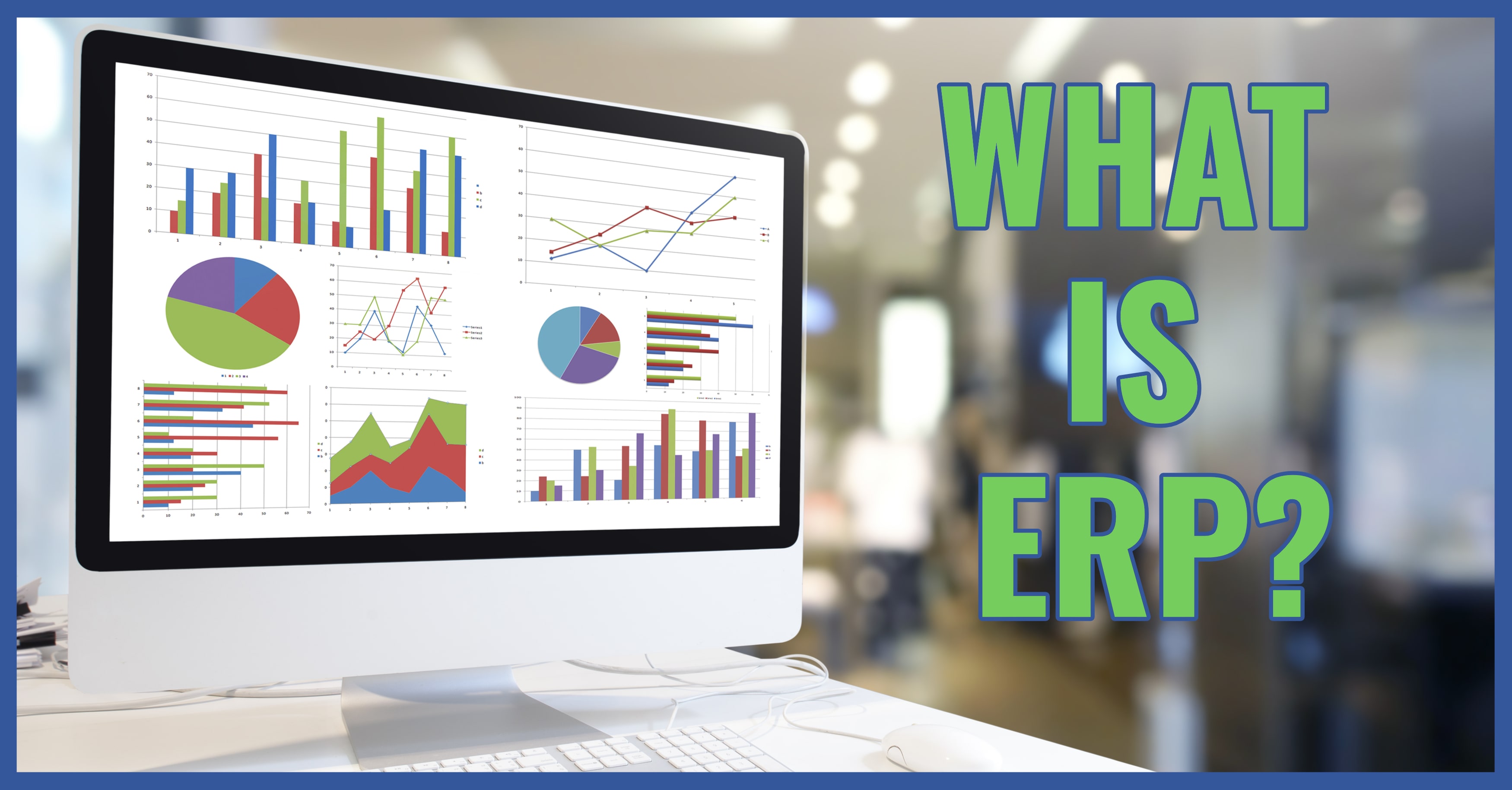ERP, Explained
Let’s be honest, it’s nearly impossible to keep up with the deluge of acronyms and jargon in the world of high tech. Several businesses don’t understand the point of ERP systems simply because the term was buried in the alphabet soup of enterprise software whenever they did research. Even when ERP is spelled out as enterprise resource planning, it’s still unclear what the software is supposed to do.
If you’re lost in your search for software that can improve your business processes, we’re here to set you on the right path. We explain what ERP is and why it’s a must for manufacturers and distributors in the modern marketplace.
ERP Definition
According to Gartner, enterprise resource planning (ERP) is “an integrated suite of business applications. ERP tools share a common process and data model, covering broad and deep operational end-to-end processes, such as those found in finance, HR, distribution, manufacturing, service and the supply chain.” ERP transforms how businesses run operations by blending an array of applications into a holistic system that enables users to increase efficiency and stay on top of data and tasks. By seamlessly connecting various modules, ERP also supports collaboration and transparency as users across several departments can access data throughout the enterprise. Plus, ERP tracks processes and equipment to provide up-to-the-minute information.
But no two ERP systems are alike. Software vendors often design their products with specific industry needs in mind. Manufacturers and distributors, for example, both require robust supply chain management (SCM) modules, such as those provided by Epicor. Once a business acquires an industry-appropriate ERP instance, it should also configure and customize the solution to ensure it aligns with specific company processes.
ERP Benefits
In addition to providing a definition of ERP, Gartner also lists four advantages of an ERP implementation: IT cost savings, business process efficiency, process standardization and enterprise innovation. Here’s how ERP provides these organizational improvements:
IT Cost Savings
Rather than manage separate SCM, financial management and quality management platforms as well as other software, an IT team only has to worry about one system. Additionally, a business doesn’t have to depend on the IT department to build software from scratch now that ERP vendors have crafted reliable out-of-the-box solutions accessible to businesses of all sizes. ERP consultants can further reduce the strain on the IT team by taking charge of software projects and providing on-going maintenance. All of this works to drastically reduce IT costs and free up more time for IT personnel to perform critical tasks.
Business Process Efficiency
Arguably, the greatest advantage of ERP is its power to boost efficiency. For example, misused inventory serves as a major contributor to poor efficiency and major expenses for manufacturers. ERP provides an average inventory accuracy of 97% and increases on-time deliveries by 24% by offering real-time insights and predictive analytics tools as part of its inventory management module. Efficiency is also increased by offering enterprise-wide visibility of resources and jobs, which enables smarter decision making. Additionally, by automatically collecting and updating data, your workforce doesn’t have to undergo the time-consuming task of manually inputting data.
Process Standardization
When data and tasks exist in silos, enterprise efficiency takes a major hit. Without an ERP instance, companies lack the visibility required to maintain business process standards across departments. In addition to offering an in-depth, real-time view of operations, ERP solutions also enable the creation of automated workflows. Workflow automation streamlines processes from end-to-end to maintain consistency and increase accuracy and productivity.
Enterprise Innovation
There’s no way your IT team can keep up with the rapid pace of technological advancement on its own. To become a factory of the future, manufacturers and distributors must leverage ERP software. An innovative ERP vendor, such as Epicor, rolls out upgrades and new solutions that include cutting-edge technology such as the Internet of Things (IoT), artificial intelligence (AI), machine learning (ML) and business intelligence (BI). Each modern technology trend introduces opportunities to utilize data for business growth and development. ERP resellers and vendors can provide your company with transformative technology that will put your business at the top of your industry.
Wrap Up
Hopefully this post has cleared some things up for companies looking to implement enterprise software. At this point, ERP is imperative for manufacturing and distribution success. When it comes to manufacturing and distribution software, one vendor stands out among the rest: Epicor. For over 40 years, Epicor has built solutions for multiple industries, always advancing its products to include the latest technology, improve user experiences and align its tools to changing business needs.
There’s also an ERP consulting firm that stands out among the rest: Datix. We’re an Epicor Gold Partner with over 20 years in business as a one-stop shop for software solutions and services. In our experience, we’ve learned that manufacturers and distributors need not only Epicor but an integrated solution that combines front and back-office data. That’s why we built Unity, our premier integration application that connects Epicor with a variety of software platforms, including CRM, eCommerce and Marketing Automation systems. By creating a single source of truth, Unity streamlines operations and enhances visibility to maximize ROI.
Convinced that you need ERP? Contact Datix today to start your enterprise software journey!
{{cta(‘770c1544-d87d-4acb-9fc4-7a25e1385094′,’justifycenter’)}}



